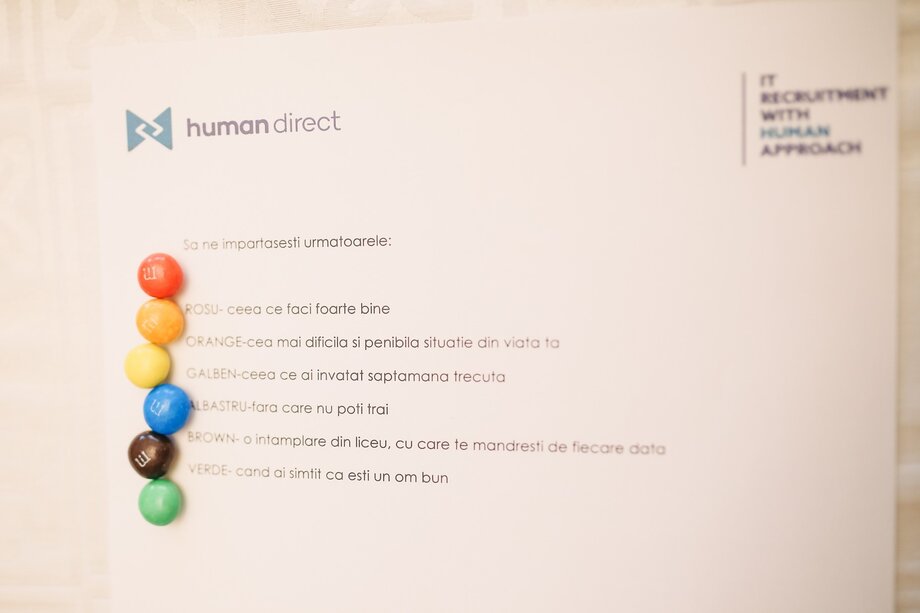Recruit the company you want to work for (Part I)
Assessing the culture fit for greater satisfaction and productivity

Imagine your dream job. Maybe you’re in a big open space office with all your colleagues and, even though you enjoy having a good laugh with them during coffee breaks, you can also be productive and feel a collective state of flow when you’re working. Or maybe you’re working remotely from a sunny island and you participate in the weekly online meeting but the rest of your time you can work at your own pace which gives you a sense of independence. Maybe you wish to be involved in all the important decisions of the company or maybe a lower degree of responsibility offers you the opportunity to focus on your tasks.
When we try to imagine the ideal job or work environment we often get a feeling of accomplishment and satisfaction from the idea of doing what we like, how we like, where, and with whom we like it. Translating this to the organizational reality, this feeling can be understood as compatibility between us as employees and the organization for which we work, from a professional and personal point of view.
In the recruitment and organizational psychology domains, there’s always a preoccupation with the organizational culture and how candidates should be recruited to fit with it. But what if I told you that you can also play an active role in this choice?
The candidate-culture match
The company, as well as the candidates, should think about organizational culture in terms of values, goals, and practices rather than in terms of personality (eg. friendly, open, communicative) as we would when observing a social group we would like to join. In this way, we assure that the bias is not perpetuated into recruiting a team that lacks diversity when it comes to skills, approaches, or creativity. Being objective in regards to the culture, the organization can take decisions without being influenced by intuition or gut feeling and the candidate can form his idea about whether he accepts or is willing to accept the core values, attitudes, and behaviors of the organization.
For example, if collaborative work is a central value of the organization, the persons who have a tendency to and wish for collaboration would better fit this culture than those who prefer independent work.

Below you will find some questions that you can ask yourself for a better understanding of what you look for in a company and some questions that you might be asked during an interview that can provide answers that shape your idea of the culture you would want to be part of. But for a more extended version of these questions, we encourage you to check this practical guide.
Some questions that recruiters can ask for assessing culture fit:
- In what kind of culture do you feel like you can express your full potential?
- What are your core values?
- What does the ideal work environment look like for you? What is the most important aspect for you when it comes to the working environment?
- Why do you want to work here?
- What makes you think you are the best candidate for this job besides your expertise?
- From what you’ve seen so far, how would you describe our organizational culture?
- How do you think you would perform in this context?
- What practices of yours do you wish to bring to our organization?
- Describe a moment where you felt like you didn’t belong to a specific organizational culture.
Furthermore, the candidate can attend a meeting of your team, have lunch with them or have an office tour so that he can form a larger perspective on your organization and so that you can observe how comfortable he would be in different situations. This can facilitate the decision of both the recruiter and the candidate.
Questions you can ask yourself for analyzing if you want to be part of a certain organizational culture:
- Can I work at my best in a virtual context or do I need the company of others?
- Am I comfortable with a hierarchical organizational structure or do I better express myself in a flat structure?
- Do I have a collaborative working style or a more individualistic one?
- Do I need clear limits between my professional and personal life or do I desire a strong bond with my team and spend time with it even after work?
These are just some examples, and once you know what your own working values are you will also know what you are looking for and what questions are important for you to ask during an interview.

Why is a culture fit desired?
Finding yourself in a place where you feel like you don’t belong can be uncomfortable and this can also reflect on your productivity, your satisfaction, and your professional growth.
From the organization’s point of view, a misfit between the employee and the organizational culture has an impact not only on productivity but also on employee retention which further translates into economic losses. 89% of employing failures have cultural reasons at the core and not the fact that the employee wasn’t able to perform the job. Moreover, the congruency between the perceived and preferred culture correlates with an affective commitment and intention to stay in the company even in the initial stages of an organizational change (Meyer, Hecht, Gill, Toplonytsky, 2010).
This being said, making sure the culture fit is perceived by both parties before making the employment decision can have economic benefits for the organization (productivity, employee retention) and professional and psycho-affective benefits for the employee (productivity, satisfaction, sense of belonging).
Culture fit in working remotely & the organization’s brand
Even before the context of the pandemic, the transition to remote work has become more and more popular, but not sharing a space with the team does not mean that assessing culture fit is less essential. Nowadays candidates are not looking only for a job they wish to have, but also for the companies they wish to work for. Because knowing the employer and the company is now performed online, the organization’s brand must be reflected as clearly and authentically as possible in the online space, in order to attract the most suitable candidates who resonate with the organization’s values and working style. This aspect is even more important when candidates have to form an idea about the company from afar.
According to Linkedin, 75% of the candidates check the website and the social media of the company before applying for the job, and 88% of those looking for a job take into account the company’s culture in their search.

Careful, it can sometimes be a trap...
The need to assess culture fit is debated is because some consider it to be just another way of perpetuating bias in the company, but that is only because there isn’t always a shared understanding of what culture fit is and what role it plays in the recruitment process.
The recruitment is not for a social club. The person who is a good fit for the company is not the one we like the most and want to grab a drink with after work, but the one who fits the way the team works the best. On top of this aspect, there should always be a great emphasis on their abilities, expertise, experience, level of commitment, and desire to get the role.
When compared with other assessing methods like the structured interview or the assessment of cognitive abilities, culture fit predicts satisfaction and employee retention but not performance or job success (Frank, 2016). For this reason, the ideal recipe is to consider organizational culture as part of the bigger picture. In this way, finding candidates with similar values and with the skills needed for performing the job, alongside investing in continuous professional development by both parties, will for sure bring great results.
For a more practical stand, check our extended guide of questions for a better understanding of how you can recruit the culture you want to be part of.

[2] https://builtin.com/company-cu...
Meyer, J. P., Hecht, T. D., Gill, H., & Toplonytsky, L. (2010). Person–organization (culture) fit and employee commitment under conditions of organizational change: A longitudinal study. Journal of Vocational Behavior, 76(3), 458–473.
Schmidt, Frank. (2016). The Validity and Utility of Selection Methods in Personnel Psychology: Practical and Theoretical Implications of 100 Years of Research Findings.
Introducing the developer’s
console.
Sign up to our newsletter and you will receive periodic updates of new blog posts, contests, events and job opportunities.
